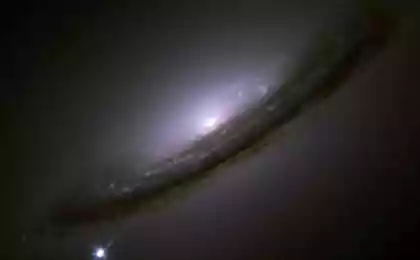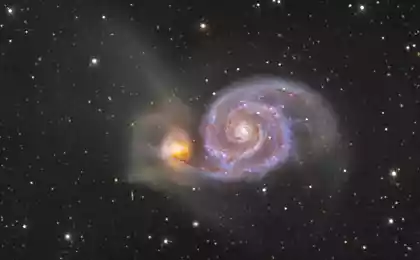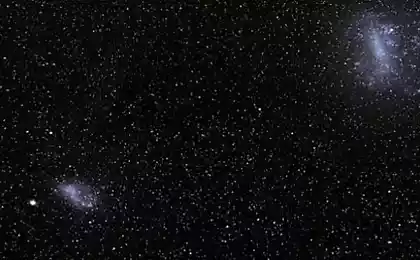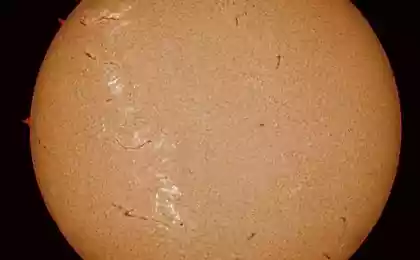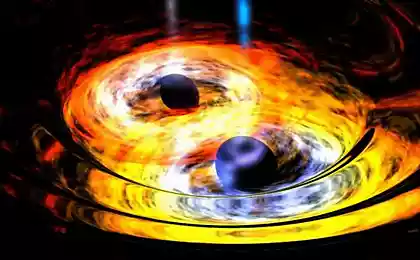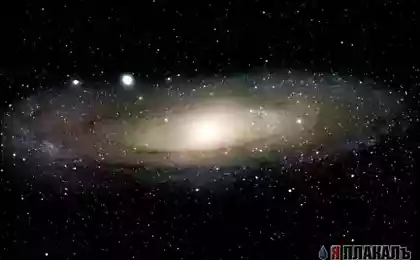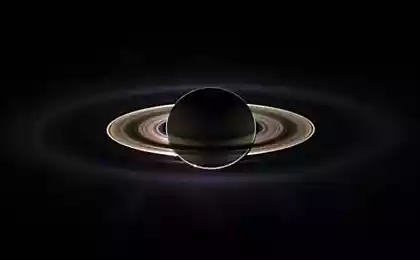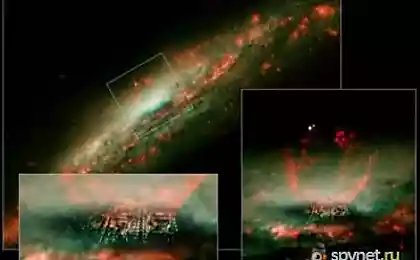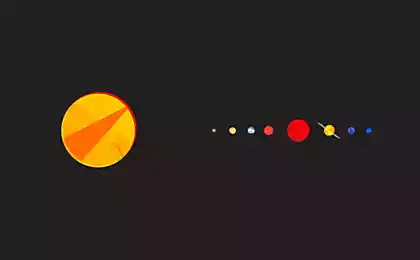744
Solar System - an anomaly on the background of the rest of the galaxy
Over the past four years due to the Space Telescope "Kepler" we have learned that in our galaxy are so many planets. But the most interesting fact that we got for "Kepler" - is that among these planets there is nothing like our own solar system. The site explains the details. < This fact is well seen on the example of the animation "Planetarium Kepler IV», created by a graduate student at the Department of Astronomy at the University of Washington Ethan Cruz. It Kruse compares hundreds of exoplanets orbit of Kepler's database to our own solar system, which is represented in the animation on the right and catches the eye. The animation shows the relative size of the planets Kepler (although, of course, not comparable with the scale of the stars), and the surface temperature.
In the animation it is very easy to see how strange it seems the solar system compared to other systems. Prior to the mission, "Kepler" in 2009, astronomers expect, the majority of exoplanet systems will be arranged by our type: Small stone closer to the center of the planet, a huge gas giants in the middle, and chunks of ice stone in the periphery. But it turned out that everything is arranged much more bizarre.
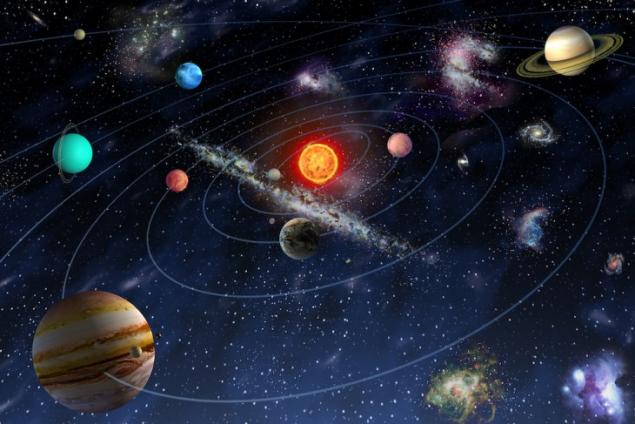
«Kepler" found "hot Jupiter", a huge gas giants that almost touch the stars system. As he explains Kruse, "device" Kepler "dictates that it is much better to pinpoint the planet with more compact orbits. In smaller systems, the planets will revolve in their orbits, so the telescope is much easier to detect them ».
Of course, the abnormality of the solar system from the crowd could be due to the fact that our knowledge of other systems are still insufficient, or because, as explained above, we mostly notice the smaller system with fast frequency movement. However, the "Kepler" has found 685 star systems, and none of them did not like our.
via www.popmech.ru/science/232543-solnechnaya-sistema-eto-anomaliya-na-fone-ostalnoy-galaktiki/
In the animation it is very easy to see how strange it seems the solar system compared to other systems. Prior to the mission, "Kepler" in 2009, astronomers expect, the majority of exoplanet systems will be arranged by our type: Small stone closer to the center of the planet, a huge gas giants in the middle, and chunks of ice stone in the periphery. But it turned out that everything is arranged much more bizarre.

«Kepler" found "hot Jupiter", a huge gas giants that almost touch the stars system. As he explains Kruse, "device" Kepler "dictates that it is much better to pinpoint the planet with more compact orbits. In smaller systems, the planets will revolve in their orbits, so the telescope is much easier to detect them ».
Of course, the abnormality of the solar system from the crowd could be due to the fact that our knowledge of other systems are still insufficient, or because, as explained above, we mostly notice the smaller system with fast frequency movement. However, the "Kepler" has found 685 star systems, and none of them did not like our.
via www.popmech.ru/science/232543-solnechnaya-sistema-eto-anomaliya-na-fone-ostalnoy-galaktiki/
80% of women do not know how to wear underwear: 10 errors
15 best films, which are not shown in theaters




